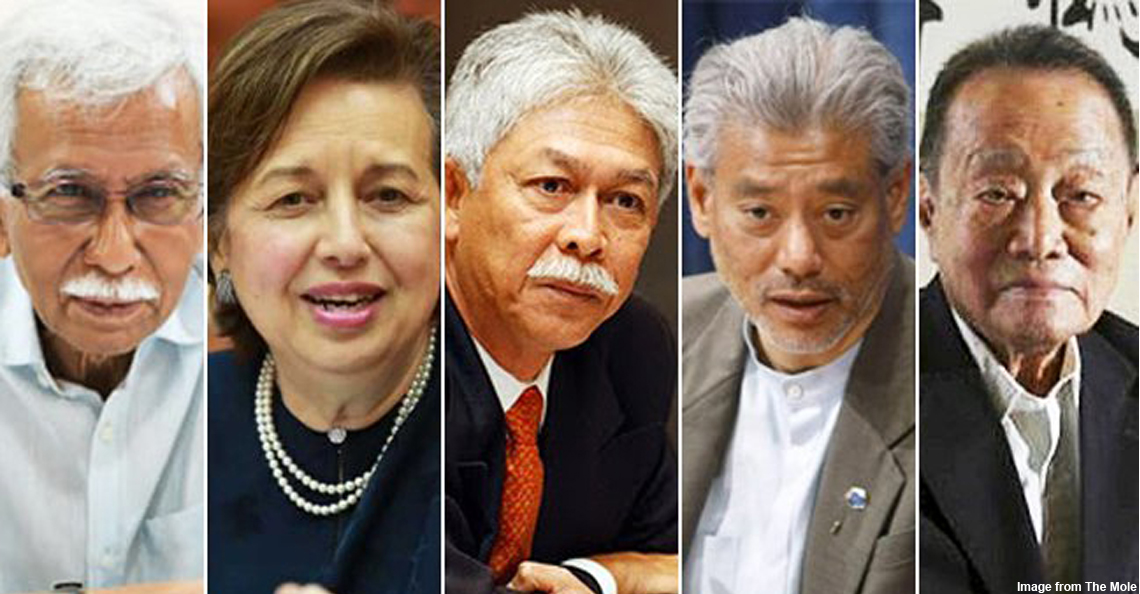Being gay: 8 things I learnt after leaving Malaysia for New York
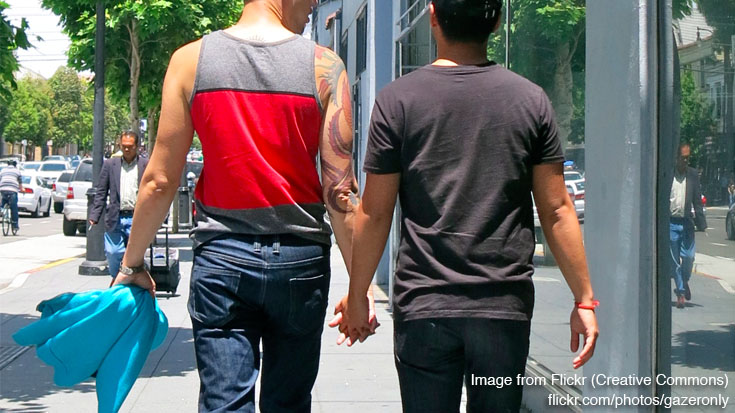
- 1.5KShares
- Facebook1.4K
- Twitter15
- LinkedIn9
- Email23
- WhatsApp24
Like Alvin Tan, I too left Malaysia on a jet plane to flee an oppressive and intolerant government… no la that isn’t quite the reason, but I left because once upon a time I fell in love (fuh romantis giler), got into a long-distance relationship for 4 years (!!!!), and we decided that it’s time to bridge the gap.
For obvious reasons, we can’t bridge the gap in Malaysia. Well technically we can la if we want to give up on all the benefits that are accorded to heterosexual couples who also want to build a life together, or erect pretenses (heheh) just to blend in with the people around us… but who wants to live like that mirite?
So we made a decision to have me move over to New York on the fiancé visa, also known as the K-1 visa. And boyyyy did I learn a lot in the past few months.
1. Bureaucracy is same same but different
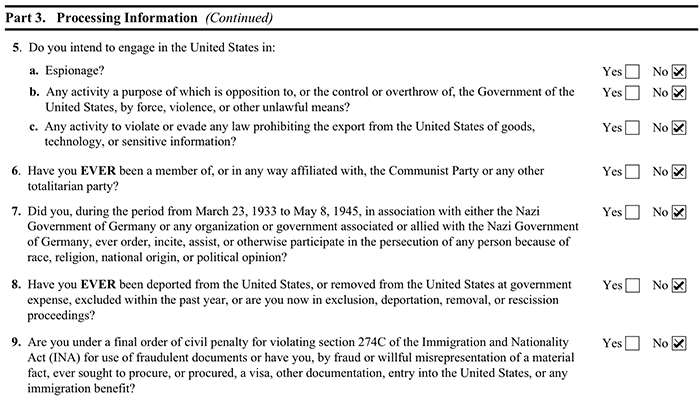
You’d think that as a developed country, the United States would have a better and faster way to process visa applications. They’re understandably strict—especially to citizens of not-so-developed countries—so that people don’t jump ship. But it blows my mind just how tedious this process can be.
I could, of course, leave it to lawyers to help me with the process. But then I found out that we were the ones who’d have to do most of the legwork (filling up forms, provide evidences, etc.), while the immigration lawyers pocket a sweet, sweet roll of USD3,000+ (RM10,344 as of today’s terrible exchange rate). The Asian in me was screaming: HELL NO!!
So we decided to do it ourselves. By using our Google-fu, we found this really helpful online guide that we followed religiously.
Apart from the usual forms they made us fill up (about 10 forms in total), according to the guide, we also had to provide “documentary proof” that we’ve actually met in person in the past two years, to prove that we were still in love like the star-crossed couples from The Notebook:
Copies of all airline boarding passes, train passes, itineraries, hotel receipts, passport stamps (make sure you can read the dates on the stamps), and other documentary evidence that you have met within the last two years.
And thennnn we also had to prepare these for the visa interview 5-6 months later:
Include photos, travel documents, emails, online chat logs (pick several over the prior few months), etc..
Waliao a bit the intrusive can.
For a better picture, take a look at this flowchart. I can’t even attach a screenshot of it, otherwise it’s too long as there are TWENTY THREE steps from beginning to the end—the end being the green card in my hands.
Now contrast this with Malaysia’s permanent residency programme. If you’re a foreign national, you can get a Malaysian PR (not to be confused with Pakatan Rakyat) if you are:
- Filthy rich: you have at least USD 2 million to put for safekeeping in any bank in Malaysia. Oh, and you can only withdraw it 5 years later ya
- An expert: meaning that your skills and talent are recognised by an international organisation
- A professional with outstanding skills (??)
- A spouse of a Malaysian citizen: you must be married and have stayed together for at least 5 years
- Qualified through a point-based system: you must have at least 65 points. It’s like B for SPM or whatever these young’uns are getting these days
Unfortunately, there have been numerous complaints by foreign spouses of Malaysian citizens who went through far worse red tape with Malaysia’s Department of Immigration. Foreign wives must have lived in Malaysia continuously for 5 years, while it’s 10 years for foreign husbands. Seriously. WTF? This excessive wait was so painful that they even banded together and established the Foreign Spouses’ Support Group (FSSG). The fact that they needed to do this is really sad.
I guess no matter where we are, bureaucracy is something we can never escape. Like taxes.
2. Same-sex marriage gives benefits and rights, just like heterosexual marriages
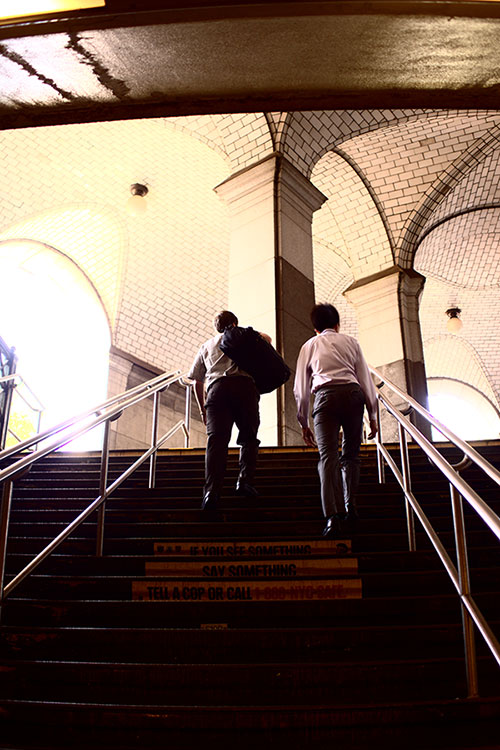
My wedding day was fairly low-key. It was attended by a few family members and friends, after which I was quickly introduced to the American culture of getting crunked at 2pm (only on wedding days). I woke up the next day, fully expecting sparkles to literally brighten my life. Or something. Alas, it’s just like my 5th birthday: uneventful. Nothing really happened.
But seriously though, the progress of gay rights in the US have only begun to bear fruit when the Defence of Marriage Act (DOMA) was struck down by the Supreme Court in July 2013. This was just last year. Even though some states have already legalised same-sex marriage, married gay or lesbian couples back then were not able to receive the same rights and benefits as married heterosexual couples, such as:
- Filing joint tax returns. It’s the new sexytime.
- Getting an exemption from estate taxes and gift taxes for the surviving spouse, which forms the basis of United States v. Windsor that toppled DOMA
- Employment benefits, like getting insurance benefits from your spouse’s employer
- Medical benefits, like being able to visit your spouse when he or she is admitted to an intensive care unit
- Family benefits, like applying for joint adoption
- dan lain-lain
I’m already benefiting from my husband’s employer-sponsored health insurance, where I didn’t have to pay a ridiculous USD 300 amount for a simple 5-minute check (WTF) to see whether my throat was infected… true story. Imagine if I were to get married when DOMA was still around— I wouldn’t have been able to be listed as a spouse on my husband’s health insurance. This insane bill was what I would have to face.
3. People can criticise the gomen AND not get jailed

So this happened: Najib recently said that the Sedition Act would be maintained and even strengthened. Maybe Najib mudah lupa, but the Internet and most Malaysians don’t. This was what he announced back in 2012:
“The Sedition Act 1948 will be repealed and replaced with a new National Harmony Act as part of the country’s political transformation plan.”
The Sedition Act has been pretty much used as an instrument of fear. I remember how my mum had requested in the past that I take down my blog posts and Facebook statuses that were critical of the Malaysian government, in case I, beloved child, was sent to jail.
But criticisms are where you will improve from. Do you think this article will be published here if CILISOS’ editor-editor berkaliber offer constructive criticisms but instead of trying to improve, I kept screaming “I WILL SEDITION YOU” in return??

When I got to the US, I saw how people freely criticised the government and Obama in all mediums (TV la, radio la, Fesbook la, Twitter la, dan lain-lain). And… dum dum dum, they can also like whatever Facebook page they want! I’m pleased to report that they also did not send you to prison just because you drew satirical comics of the government. In fact, freedom of speech is enshrined by the Constitution (limited only by obviously bad things like slander or child porn).
Even though I feel a little freer here thousands of kilometres away, I’m still shackled by a fear that has never quite left me. The fact that I chose to use a pseudonym to write this very article is telling of a society that has been conditioned by fear.
Speaking of which…
4. It’s still hard for gay people to hold hands in public, even now
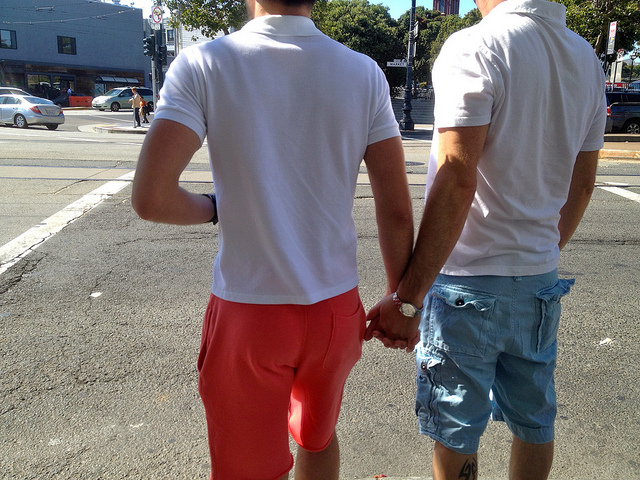
I know, it’s funny. Here I am happily married in New York, and I still don’t even dare to do something as innocent as holding my husband’s hands in public. Why leh?
Back in 2013, there was a sudden increase of gay bashings in NYC, where in one case the trigger was apparently because the couple were holding hands. Reading this news made me fearful. That gay people would be targeted and attacked simply by being themselves is NOT acceptable. It’s the same as targeting and attacking people by their race, something that the victims have zero control of. Yeah… it’s as ridiculous as it sounds.
Sadly, I’m not the only one to feel this way. A survey in Europe found that 2/3 of those asked were afraid to hold hands with their same-sex partner in public. And Frank Bruni, a columnist at the New York Times, said this during the 2013 gay bashings in NYC:
“..when my partner takes my hand in public in New York City, I look at the sidewalk ahead. I note how many pedestrians are coming our way, and how quickly, and whether they’re male or female, young or old, observant or distracted. And I sometimes take my hand back, wishing I were braver, wishing our world didn’t ask me to be.”
I’m not sure when I’ll finally be comfortable in my own skin, or be brave enough. Holding hands is not a political act for me. It’s simply a gesture of affection I want to extend to the one I’m in love with. But on the other hand (pun not intended)…
5. Most New Yorkers don’t bat an eye when you tell them that you’re gay
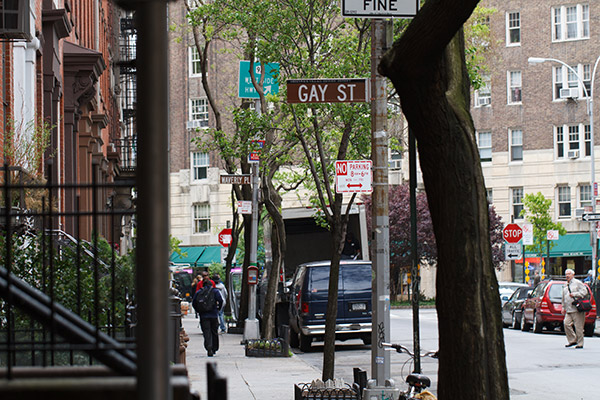
To them, it’s like saying that you’re Asian or left-handed, or that you really like baking cheesecakes when you’re depressed. It’s not something surprising or shocking. It’s just another part of you: a characteristic that shouldn’t define you.
In New York, any new people I meet or random customer service agents are not taken aback when I refer to my husband as… my husband.
Back in Malaysia, telling people that you’re gay involves strategies, which, I tell you ah, are as calculated as Malaysian politics. What usually went through my head involved answering these questions:
- Is this person religious??
- Is this person conservative or liberal?
- Has this person commented on social justice issues before?
- Does this person look like he or she has lived through World War II??
Fortunately my friends who regularly commune with God have proved my pre-conceptions wrong — they’re perfectly fine with who I am. My parents’ reaction to my coming out has been surprisingly mild as far as Asian parents go. I know my story is probably the exception rather than the rule. Societal and governmental prejudices in Malaysia have a long way to go.
Like that one time when I was at the US embassy in KL for the fiancé visa interview, and I had to tell the security guard that this angmoh lang standing next to me is, in fact, my fiancé. She looked bewildered, and asked, “Are you sure?” (“Yes, yes I am.”) She then retreated into the depths of the security guard post (three steps back), made a phone call, and… then allowed us in.
Yeah, equality will take some time.
6. Straight NY guys wear V-neck and sleeveless clothes
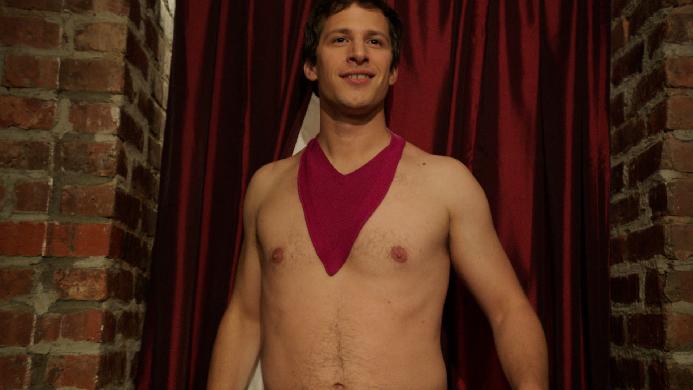
Whoa bro, it’s true.
In fact, men of any sexual orientation from many countries wear these items of clothing. While window shopping or strolling in Central Park in NYC, I saw many, many dudes wearing V-neck tees and sweaters, and sleeveless ones during the summer. Come on, straight guys reading this, surely you must have worn singlets before (or even now)?
Why is this news? Back in 2012, some NGOs in Malaysia held parenting seminars (attended by Malaysia’s Deputy Education Minister) that published guidelines on how to identify gay and lesbian schoolchildren.
The guidelines said that gay men like to wear V-neck and sleeveless clothes, as well as prefer to wear tight and bright-coloured clothes. For lesbians, they like going out and having meals with women, and prefer to sleep in the company of women.

Okay…
The stereotypes are staggering, and worst of all, misguided. I can only conclude that these NGOs have not spent a lot of time with many heterosexual people. Because these are the things that straight people do too.
7. It’s easier not to care about what other people think on Facebook (or anywhere else)
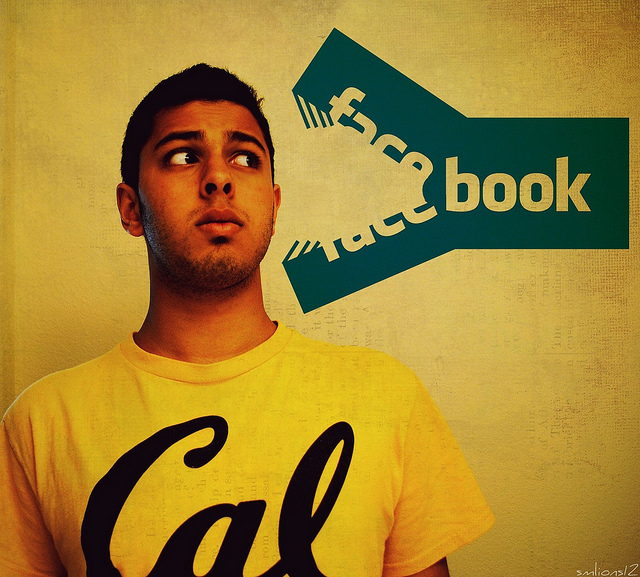
I used to control who can see my Facebook posts, like the boss of a state-controlled media. My Facebook friends were meticulously divided into two separate lists:
- Those whom I’ve come out to or whom I believe to be fine with LGBT people
- Relatives, acquaintances, and those whom I don’t believe to be fine with LGBT people
I was self-censoring my thoughts, carefully making sure that only those who were on my “trusted” list could see my posts that deal with my sexuality or LGBT issues. I was the textbook conflict-avoiding Asian — afraid of rude comments that would demoralise me.
After talking to a few gay friends, I realised that I wasn’t the only one leading a public double life. We were afraid of what people would think of us and how they may react should they know that we’re gay, and so we crafted separate public images.
But since I moved abroad though, I found myself caring less about what other more conservative friends may think. I can never please everyone, and I’m just being who I am: your typical nerdish Asian guy who just happened to be attracted to the same gender.
8. Equality is when you stop using ‘partner’ to talk about your other half
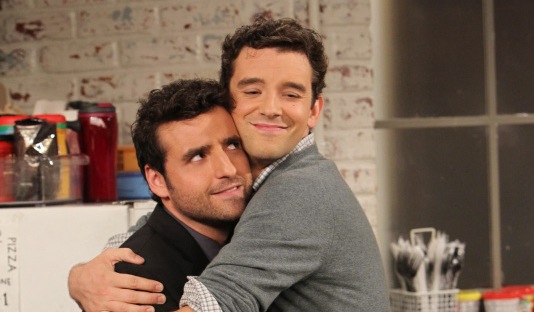
Ah, ‘partner’. It’s a useful term to use when you want to be open to people about your sexuality yet be coy about it at the same time. I’ll admit that I’m guilty of using that word a lot when I really meant ‘boyfriend’ or ‘husband’. It’s almost like a euphemism.
The now-cancelled sitcom in 2012 called Partners cleverly made a play on this very word. It was derived from its plot about a straight guy and a gay guy who are BFFs-cum-business partners, where both have their own respective boyfriend / girlfriend, or ‘partner’. Hence the name of the show.
But saying ‘partner’ to mean my male romantic interest has always felt weird to me. It’s like airing an open secret where both the listener and I clearly know what I meant, but both refuse to say that word because… You-Know-Who la. It’s He-Who-Must-Not-Be-Named. A taboo (oh snap, an obscure Harry Potter reference!). I was trying to cause the least offence, because Malaysians can be uncomfortable about the subject of homosexuality.
Since more people in New York treat LGBT people like regular human beings and with respect, there hasn’t been any need for me to use a purposefully ambiguous term like that. Maybe this is what equality feels like.
– —- –
So these are 8 lessons that I’ve gotten to appreciate and understand since moving to New York. And there’s still more that I’m gradually learning everyday.
It was a little hard for me to dive into the deep end of a completely different culture at first. Americans are typically more direct when conveying a point, as opposed to Asians who beat around the bush and insinuate and hint in a manner that would “save face”. Drivers actually stop at the stop sign and zebra crossings to allow pedestrians to pass. Winter is also coming (or already here), and the cold is so very biting for someone who lived in a tropical country all his life. (I was told it will get worse.)
With my social circles and support system dwindling to nearly nothing, it gets a little lonely sometimes. Starting my life all over from scratch in a new land isn’t easy, especially when I still don’t have a full-time job. Sure, I’ve my husband and I’ve made a few new friends, but they’re away most of the day for work, and it’s easy to slide into homesickness.

But when I think about it though, this is the only time I’ll ever escape the usual nagging questions from relatives several times a year: “Got girlfriend edi or not?” It takes setting a distance of over 15,000km to avoid this question possibly forever.
But during the times when I’d pine for home and nasi lemak and nasi kerabu beef tenderloin (dalam mulutku bagaikan nikmat syurga), I thought to myself that I would be willing to be subjected to intrusive questions by relatives a hundred times over. Sometimes there’s just no place like home. But for now, my home is New York, and I’m writing a new chapter of my life together with my husband.
- 1.5KShares
- Facebook1.4K
- Twitter15
- LinkedIn9
- Email23
- WhatsApp24


